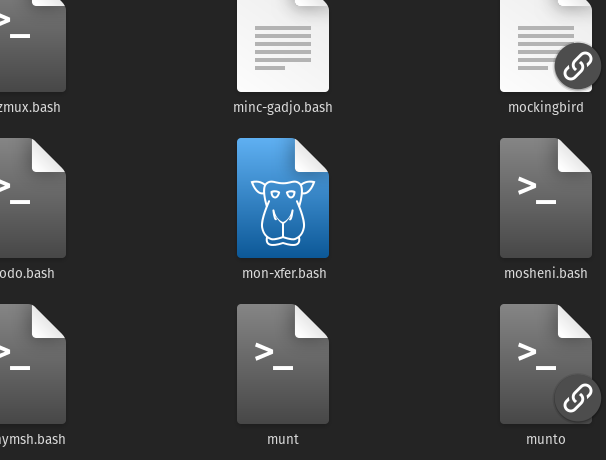I’ve been using “expr” in sh/csh/ksh and bash for decades to do simple integer maths in shell scripts and interactively…
But then about 2-3 years ago realised didn’t need “expr” - Bash can do maths (I’m not from North America, and the word “math” sounds kinda naff to my ears, it sounds like someone with a lisp talking about “mass” - which to a former Catholic like myself, is anathema - e.g. “We go to math every Thunday” ![]() ) “out of the box”
) “out of the box”
e.g.
echo $((2019-1945))
74
or
export SINCE_WW2=$((2019-1945))
echo $SINCE_WW2
74
and - I always thought to do floating point, had to use “bc” which I kinda hate (reminds me of Comp Sci lecturers extoling the virtues of the Reverse Polish Calculator)…
So - I took a look at my camelface script “mon-xfer.bash” - which I’d written back in December 2018 to monitor an rsync backup I was making of my NAS ( to 6 TB external USB ) because I’d screwed up my zpool on there (added replacement disk as a stripe member, a “concat” instead of raidz+ member) and realised I used some awk to do some simple floating point calcs… no need to break out “bc”…
e.g.
awk "BEGIN {print (365/7)"
52.1429
or
export WEEKSPA=$(awk "BEGIN {print (365/7)}")
echo $WEEKSPA
52.1429
The more I learn about sed and awk, the more I realise how little I know ![]() (and I’ve been using them rudimentarily for probably decades - even read bits and pieces of the O’Reilly book too). There’s probably neater and more elegant/efficient ways of doing floating point arithmetic in the shell - but I’d rather use awk than bc…
(and I’ve been using them rudimentarily for probably decades - even read bits and pieces of the O’Reilly book too). There’s probably neater and more elegant/efficient ways of doing floating point arithmetic in the shell - but I’d rather use awk than bc…
